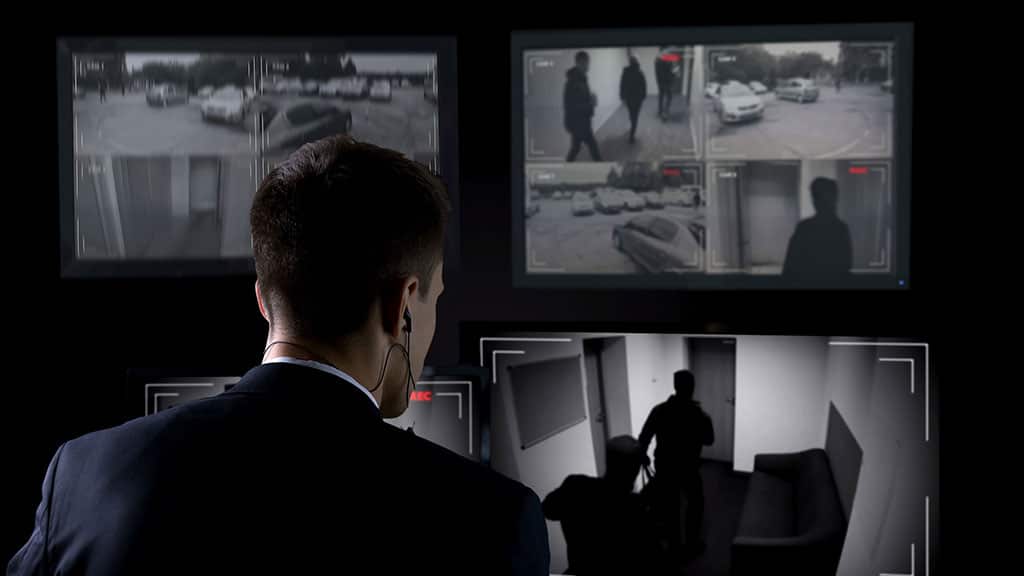Shoplifting is on a significant rise in stores across the country, and retailers are looking for ways to stop it. A combination of new tactics like mass organized shoplifting, desperation and anger from rising prices, and emboldened shoplifters is creating serious problems. Retail companies are looking into many ways to stop the new wave of shoplifting: Security guards may be a key part of the plan.
Let’s look at how security guards are getting involved in efforts to prevent shoplifting, and what that means for security firms working with retailers and other sellers.
Ask Clients About Any Updates to Security
Communication is always important, and that’s especially true when security clients are getting ready for the holidays. Send out a request to your clients (especially retail clients) asking about any changes to security procedures that your guards should know about. That could include new cameras, new delivery procedures, and additional security measures like steel cables or locked shelves to help prevent theft. Guards should be prepared to deal with any new measures taken against theft, not surprised by them.
In some cases, a guard’s role won’t change much, but they will be able to watch for new signs of attempted shoplifting, like trying to break into a case. In other situations, guards may need to learn about new alarms that have been installed, or new cameras set up to identify shoplifters.
Expand the Number of Guards at a High-Risk Location
Mass shoplifting depends on a lot of people acting at the same time to overwhelm a store. Sometimes the best defense against this – and other types of shoplifting – are a greater number of security guards monitoring the store and its access points. Clients may be interested in hiring more guards for the holiday season, so security firms should be ready to discuss the role of new guards and the best ways to prevent shoplifting. Other retailers may be considering hiring a security guard for the first time, so this is a good period to spend more on local advertising – specifically mention how the presence of a security guard can reduce shoplifting.
Be Ready to Enforce Customer Limits in Stores
Other retailers, especially those with smaller stores that have more expensive goods, are tackling shoplifting by limiting the number of people inside the store at any one time. In this case, retailers often need guards to keep track of the number of customers in the store, and pleasantly but firmly keep any more people from entering. Bouncers will be familiar with this strategy, but it’s also important that guards have some experience in customer service for this role.
Review Loss Prevention Requirements
How does a store respond to loss prevention? What point of contact makes decisions in the moment? What steps are taken? Guards should be well-versed in these important questions when taking on a retail job. Compliance with a company’s internal requirements will help avoid trouble if something does happen. Guards need to know when to respond, who to report to, and who is going to make decisions about taking action.
Keep in Mind Legal Requirements and Restrictions
Confronting someone about shoplifting isn’t always straightforward from a legal perspective. If guards are going to detain someone, they need to have personally witnessed the shoplifting and be willing to testify about it. There’s no halfway shoplifting – someone must be seen taking goods and leaving the store without paying for there to be cause to confront them. Even then, detaining a shoplifter can come with legal consequences. That’s why mass shoplifting tactics have been so effective, and why prevention is often much better than trying to catch individual shoplifters.
If guards do need to confront shoplifters, they should have the necessary training in de-escalation, and a coordinated plan (along with the retailer) for detaining a shoplifter in a specific location and contacting the authorities. Often, the goal is to make an example of an egregious shoplifter rather than try to catch every one.
Adapt Monitoring Techniques
If shoplifting has become a problem for a client, it’s probably time to update monitoring strategies. The security firm and store should go over shoplifting problems, what sort of goods are being stolen, and where the high-risk areas are in the store. Then the store and security guards can work together to adjust camera placement, and focus patrols or monitoring on the right spots. Your team can also implement measures, like “floor walking,” which can cut down on shoplifting. Changes like these are cost-efficient and can make a big difference in deterring theft. This kind of review can also show if additional guards may be needed.
Offer Retailers On-Call Guard Services
Give your retail clients an option to call for on-demand guard services. This gives some retailers valuable flexibility, allowing them to note shoplifting conditions like lots of foot traffic, an especially busy weekend, or reports of recent shoplifting in the area. Sometimes, managers may simply get the feeling something is off. Then they can make a call for additional guards as needed.
Final Notes
Security contracts to prevent shoplifting may be temporary, designed to end shortly after the holiday season. If your security firm would like to continue working with a retailer, consider offering them a discount for continuing a contract. Once you have effectively worked out a plan to address shoplifting, a client will be more likely to work with your firm in the future, too.






